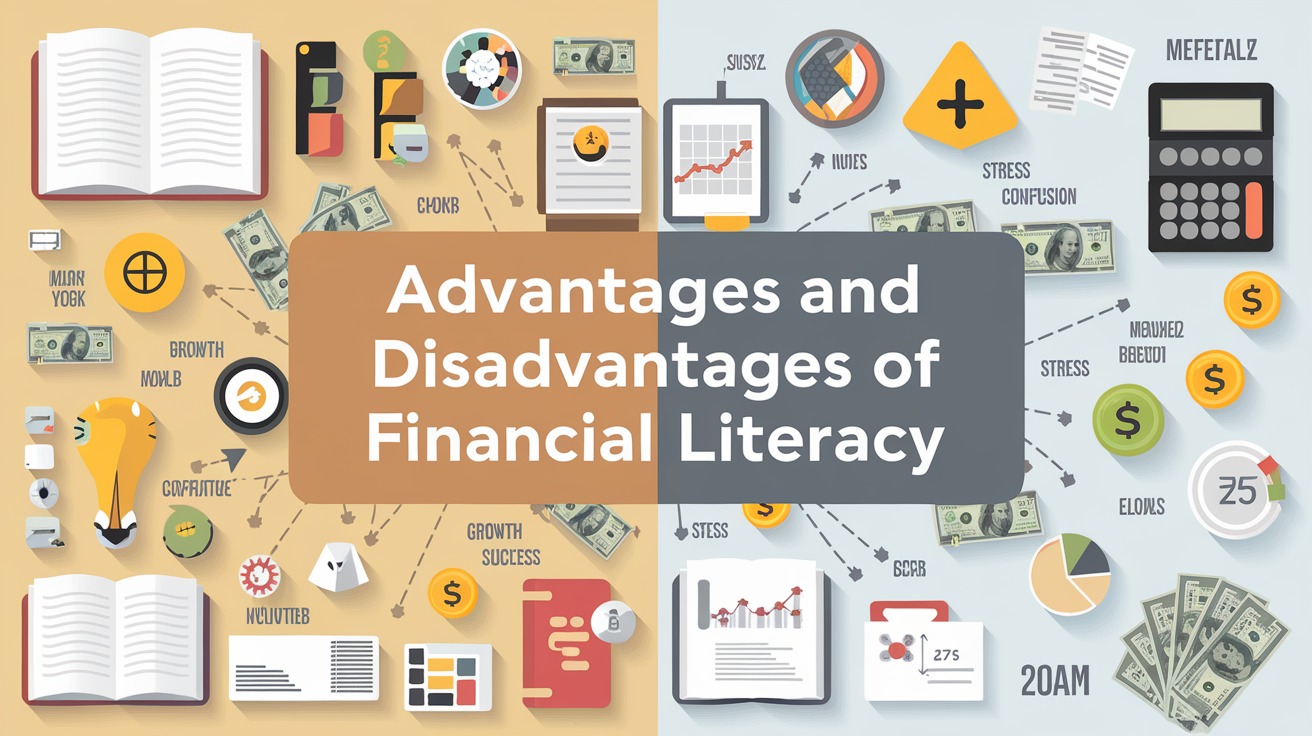Advantages and Disadvantages of Financial Literacy : Money management knowledge has been much more crucial to today’s dizzying financial complexity. Financial literacy, that is, one’s ability to understand and employ information aptly about finances in a knowledgeable way, plays a very crucial role in both personal as well as professional success. Although the benefits of having financial literacy are well documented, it is equally important to note some disadvantages. Here is a closer look into the advantages and disadvantages of financial literacy.
Advantages of Financial Literacy
Financial Decision Making
Financial literacy equips people with the knowledge of understanding and hence making better decisions on spending, saving, and even investing. It brings about better financial outcomes and reduces any likelihood of running into debts.
Improved Budgeting Skills
The capability to make a budget and how to manage it helps people understand their income and expenditure. Budgeting plays a very crucial role in enabling people to live according to their income and meet financial goals
Increased Saving and Investment
Economically literate individuals can save for all the emergencies, retirement plans, and other long-term objectives. In this regard, they are able to understand the importance of an early investment so that they can invest at the right time in the right places to maximize returns.
Debt Management
Knowledge of interest rates, loans, and credit scores will enable choices on borrowing so as to minimize high-interest debts and credit responsibility.
Heightened Financial Confidence
Financial literacy improves the feeling of capability to cope with highly complex financial situations. In this regard, it will enable someone to tackle personal finances proactively.
Better Prepared for Financial Emergency
A financially literate person is prepared to save for unforeseen expenses and may have measures in place that can safeguard against the negative impacts of sudden unemployment or other unforeseen expenses.
Increased Economic Security
On a larger level, an informed populace leads to economic prosperity since one makes proper decisions that lead to proper investment and consumption.
Drawbacks of Financial Literacy
Information Overload
There is too much information about finance. This is so much that one cannot decipher which advice is applicable and valid, and thus confusion and indecision take place.
False Sense of Security
Some will end up becoming too confident that financial literacy itself is what would keep their financial futures safe. They would then become complacent and will no longer make important financial planning.
Financial Stress and Anxiety
The more problems, or issues for that matter, people are exposed to financially, the more they would be under stress and anxiety. Some people will feel inadequacy or will fear their decisions due to their newly acquired knowledge about specific complex financial issues.
Risk of Misguided Investment Strategies
Without professional advice, a financially literate individual is likely to invest in risky areas identified by a trend or anything available because of incomplete information. This can lead to huge losses.
Time Consuming
Maintaining one’s financial literacy involves constant learning and following up on financial news and trends. It requires dedication, which for most people, is time-consuming; when people are always occupied elsewhere, it becomes even harder.
Although there may be a financial literacy ideal, the availability of quality finance education differs from one individual to another. The above situation puts the excluded in an even more vulnerable position and hence creates an opportunity for increased economic inequality.
Overemphasizing Personal Responsibility
The emphasis of financial literacy places all responsibility for reaching financial success solely on individuals’ shoulders without looking at other system imbalances such as unequal income, unequal access to quality education, and predatory lending.
The Path to Financial Empowerment
So financial literacy gives various benefits that may be very positively applied toward personal and economic well-being. It enables a great deal of decision-making and manages finances fruitfully, preparing them to face challenges in the future. Of course, that has to also take some of the pitfalls such as information overload and stress from dealing with convoluted financial landscapes.
Meaning, in this regard, to really reap the benefits of financial literacy, it is to advocate that there must be balanced and continuous education and support. To combine financial knowledge with practical experience and professional advice, people can strategically navigate their financial journeys with confidence and clarity. Ultimately, then, financial literacy is a powerful tool when used correctly to secure and achieve that better future.
Read More : Understanding the MSDS Certificate: A Complete Guide

